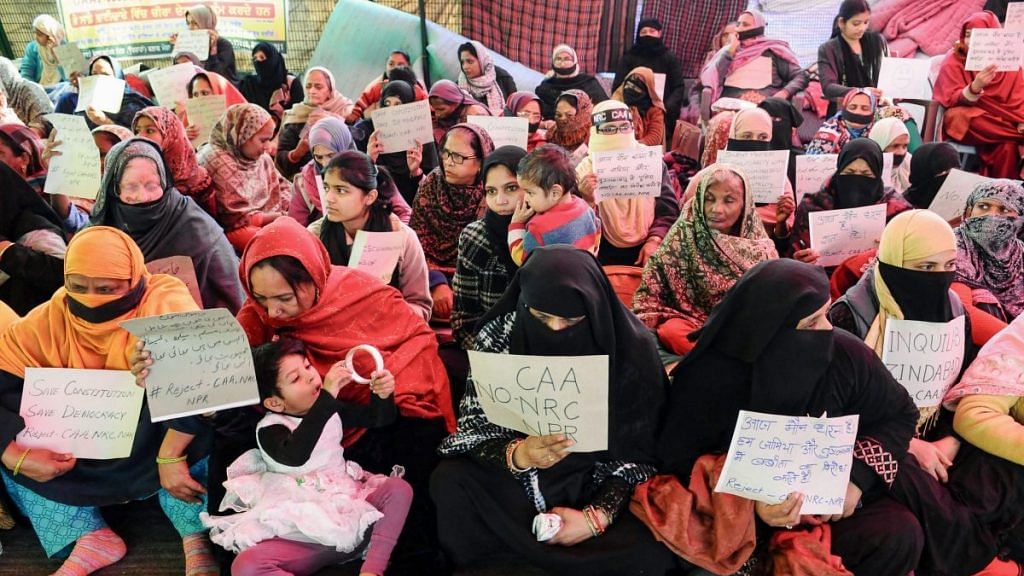As Arvind Kejriwal’s Aam Aadmi Party swept the Delhi assembly election Tuesday, Shaheen Bagh fell silent. They had heard enough already from politicians through the campaign – from ‘goli maaro…’ to ‘jihadi’ to ‘rapists’. It was a day they chose to step back from electoral politics. The women protesting against the Citizenship Amendment Act at the site covered their mouths with black cloth and held placards that read “we don’t support any political party”.
The silent protest was to decry the police brutality against Jamia Millia Islamia University students but more importantly, it was to keep themselves at an arm’s length from partisan politics. After all, it wasn’t just the BJP, but even Delhi CM and AAP’s Arvind Kejriwal never visited the protest grounds.
How do we read their silence? By not saying anything on a day of election results, they were expressing their lack of faith in the majoritarian politics that has brought the Muslim citizens of India to this state of being suspect. Since their ‘azaadi’ and ‘la ilaha illallah’ slogans were demonised by the BJP leaders, their supporters and many in the media, the protesters chose silence to communicate their message. They had literally run out of political language to speak to those in power.
While a non-aligned stance like this may echo a NOTA vote or a scratch ballot, it was more of a distancing from the game of winners and losers.
Also Read: The one taboo word that Amit Shah and Narendra Modi supporters hate today
Denying media the chance to sensationalise the issue
It is equally significant that when journalists approached protesters in Shaheen Bagh Tuesday, the demonstrators refused to speak and only pointed at their placards. Perhaps the assumption was that the protesters, who categorically criticise the BJP for churning out divisive measures such as the CAA, NRC and NPR, would be happy with the party’s loss.
The reporters perhaps hoped to catch hold of someone speaking in support of AAP, given that Shaheen Bagh is located in the Okhla constituency, which re-elected Amanatullah Khan. But there was no celebration or concept of “either or”. The sentiment at the protest was sombre and seemed to belittle the “fun” surrounding election results.
Also read: Indian liberals missed the mark yet again by protesting ‘la ilaha illallah’ in CAA debate
Credibility of the cause
Choosing a stance of non-alignment was also necessary for the credibility of the cause. This makes the distinction between realpolitik and electoral politics all the more critical even though the two feed into each other.
The resistance began on 15 December with just a handful of women protesting the CAA before it snowballed into a nationwide movement. They picked their symbols and optics cautiously. Waving the national flag, invoking Gandhi, Nehru, Ambedkar, they have so far successfully avoided being boxed into the category of holding an Islamist protest, which the BJP tried very hard to. But in the larger public perception, they are not viewed as “anti-national” or “separatist”, tags that were used against Umar Khalid and Kanhaiya Kumar during the 2016 JNU protest.
Given its sheer growth over the last two months, Shaheen Bagh cannot afford to stoop down to partisan politics now. If it does, it may be subjected to a particular party’s apparatus — be it ideology, methods or past history. It is a lesson to future social movements in India that associating with a political party can be detrimental to the cause and rob it of its sentiment.
Also read: Modi-Shah’s BJP govt has failed India’s youth and is now stuck fighting them
The Shaheen Bagh protest began as a response to electoral politics, but what they have articulated with their silence – and their words – is above and beyond it.
